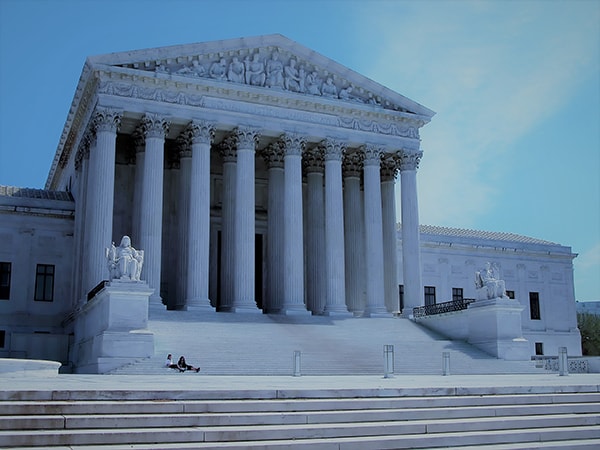Federal Crime Lawyer: Defending Your Rights Against Serious Federal Charges
Debunking the Process of Federal Appeals: What You Required to Know
Browsing the intricate world of federal appeals can typically seem like passing through uncharted waters for those not familiar with the process. Comprehending the nuances of appellate court territory, the ins and outs of submitting a notice of allure, presenting a compelling brief, and making a convincing oral disagreement are vital parts that can substantially impact the result of an instance. By unwinding the layers of complexity surrounding government appeals, individuals can get a more clear understanding into the mechanisms that govern this critical point of the lawful system.
Comprehending Federal Appeals Process
Digging right into the complex realm of the federal allures process introduces a structured and methodical journey with the judicial system. Federal charms function as an important mechanism for reviewing choices made by reduced courts. Comprehending this process is necessary for anybody entailed in lawful proceedings at the federal level.
The process generally begins with a party disappointed with a reduced court's ruling submitting a notice of charm. This causes a testimonial by a higher court, where a panel of courts examines the legal debates presented by both events. Briefs describing the lawful thinking behind each party's placement are sent, and oral arguments might be heard to make clear complex problems.
The appellate court's decision is based on a thorough evaluation of the lower court's proceedings and the disagreements presented. The judges do not reconsider truths yet focus on whether lawful errors took place that impacted the lower court's decision. Once the appellate court gets to a decision, it can attest, reverse, remand, or modify the reduced court's ruling, offering quality and finality to the lawful disagreement. Understanding this process is essential for navigating the intricacies of federal charms successfully.
Appellate Court Jurisdiction Described
As we progress from recognizing the government allures process to dissecting the intricacies of appellate court jurisdiction, a fundamental facet emerges relating to the authority and limitations of these higher courts in the legal landscape. Appellate court territory refers to the scope of situations that a particular appellate court has the power to assess and choose upon. Unlike high court that hear situations for the very first time, appellate courts are limited to assessing choices made by lower courts. These decisions can consist of judgments from both state and government courts.
Appellate courts have jurisdiction over certain types of situations, usually those entailing legal mistakes, procedural issues, or concerns of law instead of factual disputes. The territory of appellate courts is usually laid out in laws and legislations that govern the court system. Comprehending appellate court jurisdiction is essential for parties associated with the appeals procedure as it establishes whether an instance is qualified for evaluation and the degree to which the appellate court can intervene in the lower court's choice.
Declaring a Notice of Appeal
The initial action in beginning the federal appeals procedure entails filing a Notice of Allure with the proper appellate court. This important file formally alerts the court and the other parties associated with the case that the appealing event means to seek a review of the lower court's decision. Submitting a Notice of Allure is a stringent procedural need that sets the appellate procedure moving.
When preparing the Notice of Charm, it is necessary to guarantee conformity with the specific policies and standards of the appropriate appellate court. federal crime lawyer. The file has to generally include info such as the situation name, the reduced court's name, the day of the judgment being appealed, and a succinct declaration showing the grounds for the allure

Instruction and Oral Argument
In the appellate procedure, offering created briefs and engaging in oral arguments play pivotal duties in supporting for the appealing celebration's setting before the appellate court. Briefs are detailed lawful records that lay out the celebrations' disagreements, legal authorities, and evaluation supporting their positions. These written submissions provide the court with a detailed understanding of the realities of the situation, the appropriate law, and why the appealing celebration believes the reduced court's choice ought to be overturned.
Adhering to the submission and evaluation of the briefs, oral debates use the parties a chance to further clarify their placements, deal with any kind of questions the appellate judges might have, and highlight bottom lines from their written briefs. Dental arguments are a possibility for the lawyers to persuade the courts through verbal campaigning for and responses to queries from the bench.
Both the created briefs and dental disagreements are essential elements of the appellate procedure, allowing parties to present their situation extensively and compellingly prior to the appellate court. - federal appeal lawyers
Receiving the Appellate Court Decision
Upon conclusion of dental debates and entry of written briefs, the next essential stage in the appellate procedure entails awaiting the decisive judgment from the appellate court. This duration of expectancy can be loaded with a mix of stress and anxiety and expect events associated with the charm. The appellate court's decision is generally provided in a written format and outlines the court's conclusions on the legal issues offered, the thinking behind their choice, and the judgment made. The moment framework for getting the appellate court's decision can vary, but courts make every effort to give timely resolutions. Once the decision is released, celebrations must thoroughly review the court's judgment to comprehend the outcome and identify any type of additional steps that might be needed. Whether the appellate court verifies, turns around, or remands the lower court's choice, recognizing the implications of the ruling is crucial for all celebrations associated with the appellate process. Consequently, quickly reviewing and comprehending the appellate court's decision is vital in navigating the next actions in the legal procedures.
Verdict
To conclude, the government allures process is a complicated yet vital action in seeking justice. Recognizing the appellate court jurisdiction, filing a notice of allure, preparing briefs, and offering dental arguments are all essential components of this process. Inevitably, obtaining the appellate court choice can supply quality and resolution to legal disputes. It is very important to browse the government allures process with diligence and interest to information to attain a reasonable end result.
As we proceed from understanding the federal charms process to exploring the intricacies of appellate court jurisdiction, a basic aspect comes try this web-site to light pertaining to the authority and limits of these higher courts in the legal landscape. Appellate court jurisdiction refers to the extent of cases that a particular appellate court has the power to choose and review upon. Unlike trial courts that hear cases for the very first time, appellate courts are limited to assessing choices made by reduced courts. Comprehending appellate court jurisdiction is vital for events included in the charms process as it identifies whether an instance is eligible for testimonial and the extent to which the appellate court can intervene in the reduced court's decision.
